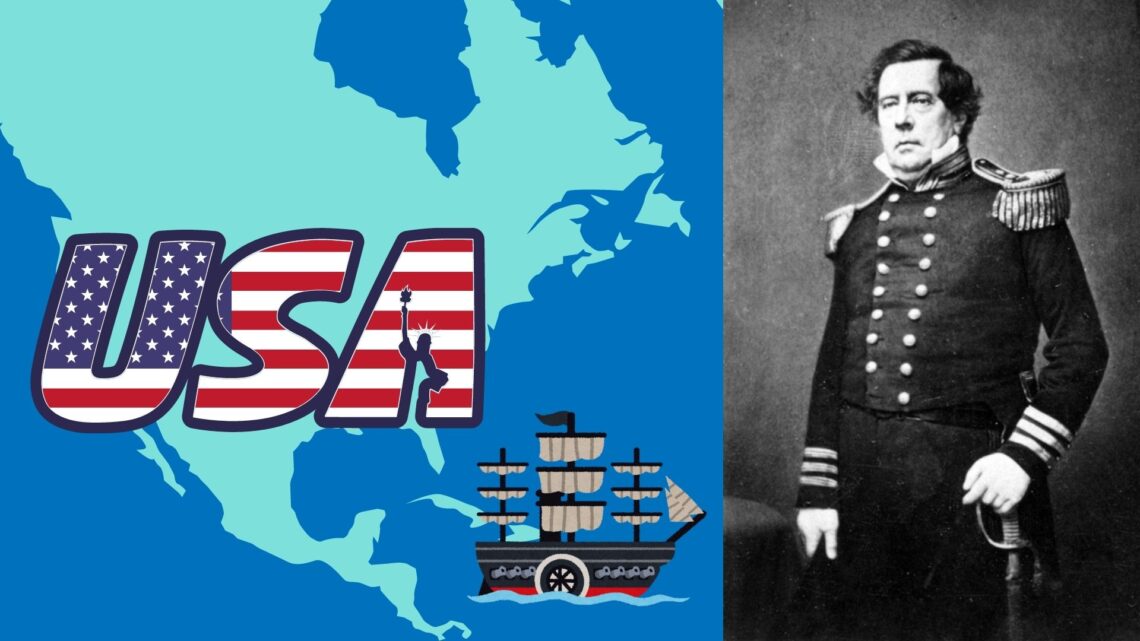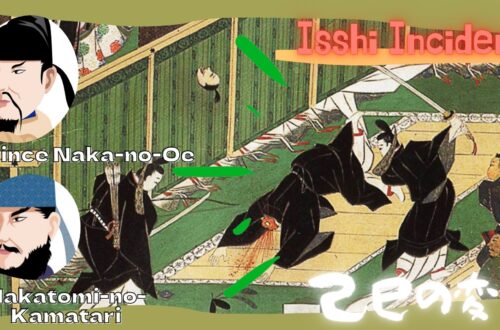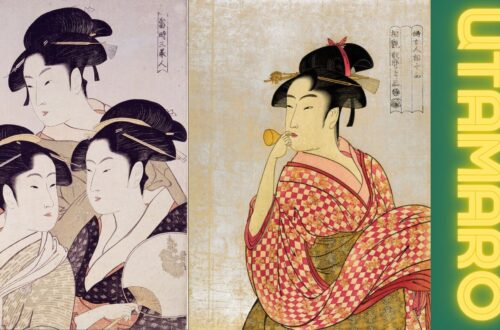
#33 Commodore Perry
Here is my YouTube Video : Japanese History in 3 minutes #33 Commodore Perry

On July 8, 1853, four black ships appeared at Uraga. The huge warships that appeared in Edo Bay wreaked havoc on the people of Edo.

On board, the flagship, the frigate Susquehanna, was Matthew Calbraith Perry, the man who ended Japan’s isolationist policy that had lasted more than 200 years.

Perry was born in Newport, Rhode Island in 1794, he joined the U.S. Navy at the age of 14. In 1852 he became Commander in Chief of the East India Squadron, carrying a letter from President Fillmore to Japan to make Japan a whaling port of call.

The fishermen of Uraga were astonished to see steamships for the first time. They were about 20 times the size of Japanese ships. The four black ships, including the two steamers, were armed with a total of 73 cannons in preparation for an attack by the Japanese.

Perry used America’s military might as leverage when he negotiated with Shogunate officials and demanded that they open their ports to American whalers. The Shogunate, troubled by the response, asked for time to think, and Perry returned to Hong Kong, then a British colony.

The decision was left to a senior counsel Abe Masahiro. Abe ordered the clans to build warships to fortify the defenses of Edo Bay as soon as Perry left. However, Perry arrived in Japan again, earlier than scheduled, and with a larger fleet of seven ships.

In 1854, the Japan-U.S. Treaty of Peace and Amity, or Kanagawa Treaty, was finalized. Japan opened two ports, Shimoda and Hakodate, to American ships to provide them with fuel and food, and America opened a consulate in Japan.

The subsequent Treaty of Amity and Commerce between Japan and the United States in 1858 was an unequal treaty that was unfavorable to Japan. The Shogunate was forced to conclude similar treaties with European countries, putting Japan at an international disadvantage.

The decline in the authority of the shogunate and the extreme inflation caused by trade with Europe and the United States led to popular discontent. This eventually developed into a movement that called for the exclusion of the West. Japan was to experience a period of upheaval that lasted 15 years.

After returning to New York, Perry wrote “Narrative of the Expedition of an American Squadron to the China Seas and Japan” and other books. He died soon thereafter in 1858.




